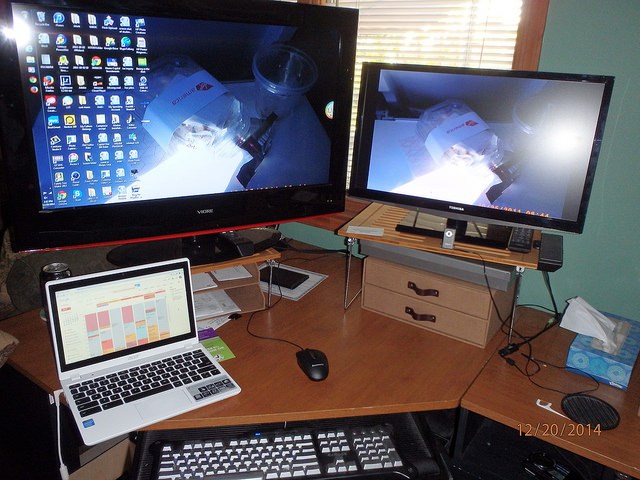1. Take care of yourself
Above all else, the most important thing is simply to take good care of yourself. Get plenty of rest, eat healthy, drink plenty of liquids during the day, and make sure you get enough exercise. These are common sense ways to stay healthy, and the healthier you are, the better you are able to cope with any added work responsibilities, as well as the potential for increased stress. This also means taking care of yourself at the end of the day by finding ways to reduce your stress outside work, such as massage or aromatherapy.
2. Set a regular routine for your daily tasks
In any job, it is necessary to set a regular routine, so you can plan out how to address your daily tasks. Decide what your priorities are and go from there. Things that need doing first will get done first, and other tasks can be done in the order of their importance. If you have a daily routine set up for tackling the workload, it will seem easier if you break it down into bite-sized pieces. This will allow you to focus on one thing at a time, instead of being overwhelmed projects as a whole.
3. Develop a method to help you track your progress
The planning process of any job means finding how best to do what is expected. Only you know what works best for you, so you should devise your own way of managing your time. You need a process that allows you to see what needs to be done and track what you actually accomplish every day. You need to be able to see not only what you have done, but also set a plan for accomplishing what you need to do. This plan can start with what you expect to accomplish and fill it in as you go with what you actually accomplish. Like an athlete in training for a race or competition, you will gradually prepare to meet your goals.
4. Take regular breaks from the computer
With a full workload, it is easy to become absorbed in your work and forget everything else. It may seem easier to stay focused, but it is actually bad for your health (both mentally and physically) to stay seated for long periods of time. It is important to remember to just take breaks throughout the day. Stand up and stretch, walk around, do what you can to release the pressure from time to time. This should be a part of your regular plan each day.
5. Gather feedback from other employees
Any job is better when you can get feedback on what you are doing from other people in the office. Rather than just staying focused on your own responsibilities, it helps to engage in conversation with others around you. Everyone has something to contribute in a workplace, so don’t underestimate the value of feedback. You always gain from the input provided by those who work with you. If you need ideas or feedback on what you are doing, the people next to you are your best source.
6. Spend time helping or promoting others
Even in job situations where the emphasis is on individual performance, you should still reach out to other workers for support. This can go both ways. When you make time to help other people, or take note of what they do well, it can increase your job satisfaction greatly. Everyone appreciates gaining support from coworkers. When you contribute to the training and support of other people, you also gain personal satisfaction that comes back to you in immeasurable ways.
7. Set aside a day for catching up
No matter how complex your job is, everyone needs a break. If you are under a lot of pressure, you need to feel like the pressure is off some of the time. Coping with work stress is not easy, so you need time to relax. Choose one day of the week to allow yourself to regroup, or just catch up on tasks you may be falling behind in. It will give you the time needed to face unexpected problems that arise and to solve them. This can be your designated non-stress day.
8. Find ways to reward yourself
Work can seem so difficult that it can rob you of the feeling that you are making any progress. It’s a great idea to find some way to personally reward yourself when you complete something, no matter how small. Pick something you enjoy, like a special food, or treat, or anything else you enjoy. Rewarding yourself is a great way to stay motivated and feel better about what you are doing every day. There are always ways that you can find small rewards in whatever you are doing. These can be small things that others might deem insignificant, but rewarding yourself is essential to job satisfaction.
9. Make time to evaluate your progress
Every job has its challenges, but it is important to set aside time to evaluate the progress you are making. On a weekly or monthly basis, you should plan to spend time looking at what you have been able to accomplish and how successful at it you have been. You should be able to look at your own strengths and weaknesses, rather than depend solely on the evaluations of your supervisor. Be honest with yourself about how well you are doing. Evaluating your progress will help you look forward and plan ahead.
10. Take time to relax and think creatively
Everyone needs time to unwind, even during the work day. It’s a good idea to set aside some time for yourself, even short amounts to relax and take a break from your normal routine will be beneficial. This is extremely important, especially if you are in a position that requires some creativity. Being relaxed is the best time to come up with new ideas. While stress can reduce your ability to get inspired, the lack of stress will stimulate your creativity. Simply getting up and just going for a short walk can spark your imagination.
11. Expand your knowledge through courses or classes
Furthering your education is something that can be overlooked in work environments. It may seem easier to just learn the job you have and settle into a routine. However, everyone needs to be able to expand their knowledge. Take an online course, or just read about new subjects in your spare time. Even the so-called experts in any field, spend time learning. Continuing to read more and study up on a variety of topics related to your job will help you stay well-informed. Being empowered with greater knowledge will help you move ahead in your career and prepare you for possible career changes that may lie ahead. Featured photo credit: by Eef Ink at Flickr Creative Commons via flickr.com

